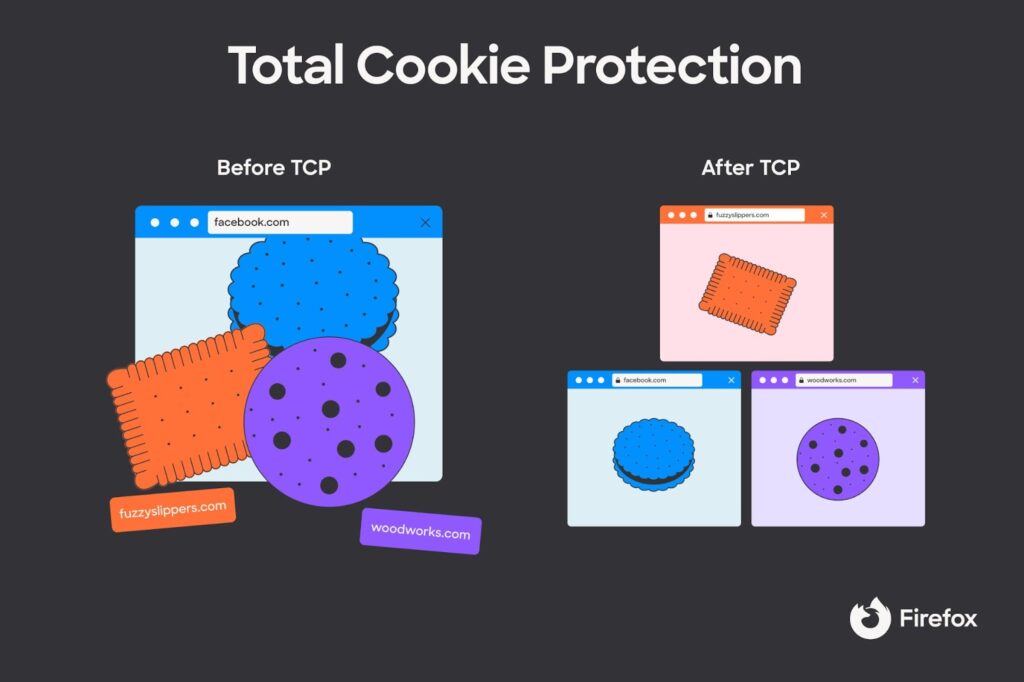Get fucked, advertisers.
Technology
This is a most excellent place for technology news and articles.
Our Rules
- Follow the lemmy.world rules.
- Only tech related content.
- Be excellent to each another!
- Mod approved content bots can post up to 10 articles per day.
- Threads asking for personal tech support may be deleted.
- Politics threads may be removed.
- No memes allowed as posts, OK to post as comments.
- Only approved bots from the list below, to ask if your bot can be added please contact us.
- Check for duplicates before posting, duplicates may be removed
Approved Bots
Advertisers track you with device fingerprinting and behaviour profiling now. Firefox doesn't do much to obscure the more advanced methods of tracking.
EU outlaws it
The EU isn't the only place on the planet, even if its laws have an impact.
Honestly would be hard to do. There a perfectly legitimate and everyday uses for pretty much everything used in fingerprinting. Taking them away or obscuring them in one way or another would break so much.
There is still plenty of fish for advertisers, sadly.
For those who don't care to read the full article:
This basically just confines any cookies generated on a page, to just that page.

So, instead of a cookie from, say, Facebook, being stored on site A, then requested for tracking purposes on site B, each individual site would be sent its own separate Facebook cookie, that only gets used on that site, preventing it from tracking you anywhere outside of the specific site you got it from in the first place.
Hahahahaha so it doesn't break anything that still relies on cookies, but neuters the ability to share them.
That's awesome
Honestly, I thought that's how it already worked.
Edit: I think what I'm remembering is that you can define the cookies by site/domain, and restrict to just those. And normally would, for security reasons.
But some asshole sites like Facebook are making them world-readable for tracking, and this breaks that.
They've been doing this with container tabs, so this must be the successor to that idea (I'm going to assume they'll still have container tabs).
Container tabs are still a thing in FF. This is based on that work, if I remember correctly.
Total Cookie Protection was already a feature, (introduced on Feb 23st 2021) but it was only for people using Firefox's Enhanced Tracking Protection (ETP) on strict mode.
They had a less powerful third-party cookie blocking feature for users that didn't have ETP on strict mode, that blocked third party cookies on specific block lists. (i.e. known tracking companies)
This just expanded that original functionality, by making it happen on any domain, and have it be the default for all users, rather than an opt-in feature of Enhanced Tracking Protection.
That's not what I was thinking of, which was even more fundamental. But that's good info (and another way to cover stuff in the article).
Edit: what I was thinking originally was really stupid, that 3rd-party cookies weren't allowed at all. Which was really dumb since of course they are.
Isn't this basically Firefox's version of the third party cookie block that Chrome rolled out a few months ago? Or am I missing something here?
I mean, it's good news either way but I just want to know if this is somehow different or better.
For those who don't care to read the full article
Or even the whole title, really
Basically creates a fake VM like environment for each site.
I don't know why this wasn't the case long ago.
It increases implementation complexity of the browser and loses people who fund Firefox and contribute code $$$
I think this tips it over the edge for me to switch to Firefox
I hope so! It's a wonderful side of the Internet to be on
Maybe they should try to develop the uBlock Origin extension with the dev to make it last more.

Yup. Nobody else gets those cookies.
Does this stop me from adding to my website an iframe to facebook where facebook can keep its cookies for my user? That would be great but I doubt it.
IIRC an iframe contents is treated as a separate window, so cookies aren’t shared either
Well, now how am I supposed to cross reference my need of fuzzy slippers and woodworking stuff?!
Is this the reason why I have to "confirm it's you" every time I sign into a Google service now? I appreciate the fact that Firefox's protection is so good that Google doesn't recognize my PC anymore, but it's extremely annoying to have to pull out my phone every time I want to watch YouTube.
This might be what finally convinces me to ditch Google for good. Good job, Firefox devs.
Forgive me if this is an overly simplistic view but if the ads with cookies are all served on Google's platform say then would all those ads have access to the Google cookie jar?
If they don't now then you can bet they are working on just that.
We'll have to see what happens but what you are talking about is what Mozilla calls Third-Party Cookies and... they are aware of it.
I can't entirely tell if that means they will be put in the facebook cookie jar or if it will be put in the TentaclePorn Dot Org (don't go there, it is probably a real site and probably horrifying) cookie jar. If the former? Then only facebook themselves have that which... is still a lot better I guess? If the latter then that is basically exactly what we all want but a lot of sites are gonna break (par for the course with Firefox but...).
They are usually separate things. Cookies are produced/saved locally, to be read in the next visit (by the same website or maany websites basically forever unless you use firefox containers or at least clear them once in a while). There's also local storage which is different but can also be used to identify you across the web. Ads, trackers, all of these categories are often made of many small components: you read a single article on a "modern" newspaper website, hundreds of connection are being made, different tiny scripts or icons or images are being downloaded (usually from different subdomains for different purposes but there's no hard rule). It's possible to block one thing and not another. For example I can block Google Analytics (googletagmanager) which is a tracker, but accept all of Google's cookies.
Aren’t cookies already limited to the site at which they were created??
What the fuck? You mean to tell me sites have been sharing cookies?
I thought all browsers only delivered cookies back to the same site.
Good to see Firefox still has value to provide
Firefox is awesome.
Why are we posting 2 year old articles as though they are new?
Looks like the article was updated today. I'm guessing this was originally covering an announcement for a future rollout and now it's finally happening?
Mozilla completes what Google was too afraid to finish.